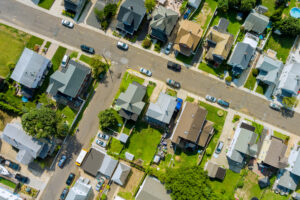In today’s dynamic real estate market, understanding current trends is essential for both buyers and sellers who aim to make informed decisions. Whether you’re looking to purchase a new home or hoping to sell your property, keeping an eye on the changes in the market can give you a competitive edge. Real estate trends are influenced by a multitude of factors including economic fluctuations, demographic shifts, technological advancements, and even environmental considerations. By grasping these trends, one can anticipate changes and make strategic decisions to maximize benefits.
Economic Factors
A key driver of real estate trends is the economic climate. Interest rates are perhaps the most immediate economic factor affecting the market. When interest rates are low, borrowing becomes more affordable, spurring more buyers into the market. Conversely, high interest rates can dampen buyer enthusiasm, leading to slower sales and stabilizing or even lowering property prices. Inflation also plays a significant role; as prices of goods and services rise, the cost of building materials and labor may increase, impacting the price of new homes and renovations.
Another economic factor is employment levels, as job growth or decline directly influences people’s ability to buy homes. A robust job market often translates to heightened demand for housing, whereas a stagnant or declining job market can result in less purchasing power among potential buyers.
Demographic Shifts
Demographics are shaping the real estate landscape in unexpected ways. Millennials, now the largest generation in the workforce, are significantly impacting the market. Their preferences lean towards urban living with easy access to amenities and workplaces, as well as a tendency towards sustainability and energy-efficient living. This has resulted in increased demand for apartments, condos, and smaller homes in city centers.
Meanwhile, the baby boomer generation is beginning to downsize, selling off larger homes in favor of smaller, more manageable properties or opting for retirement communities. This shift opens up opportunities for families looking for spacious homes in suburban settings.
Technological Advancements
Technological innovation is transforming how real estate is bought, sold, and managed. The proliferation of digital platforms and mobile applications has revolutionized property search, making it easier for buyers to access listings, virtual tours, and neighborhood statistics. Blockchain technology, though still in its infancy in real estate, promises to impact property transactions by making them more secure and transparent, potentially reducing the risk of fraud.
Furthermore, smart home technologies are becoming a major selling point, with increasing numbers of buyers seeking homes equipped with smart thermostats, security systems, and energy-efficient appliances. These technologies not only enhance convenience but also contribute to long-term cost savings, making them attractive investments for homeowners.
Environmental Considerations
Sustainability is no longer a trend but a fundamental aspect of modern real estate. Buyers are more conscious than ever about the environmental impact of their homes and are looking for properties that boast eco-friendly features like solar panels, efficient insulation, and sustainable materials. This shift is prompting developers to incorporate green building practices and energy-efficient designs into new construction projects. Additionally, natural disasters and climate change risks are becoming increasingly critical in property valuation. Areas prone to flooding, wildfires, or hurricanes may witness fluctuating property values as climate resilience becomes a priority for homebuyers.
The Impact of Remote Working
The rise of remote work has dramatically reshaped real estate priorities for many buyers. As more professionals embrace the flexibility to work from anywhere, there’s been a noticeable migration from major urban centers to suburban or even rural locations offering more space and a lower cost of living. Homes that provide office space or are located in quieter, less densely populated areas have seen a surge in demand. This trend is expected to continue as companies adopt hybrid working models that combine in-office and remote work opportunities.
Navigating the Market as a Buyer
For prospective home buyers, understanding these real estate trends is crucial for navigating the market successfully. Before making a purchase, it’s vital to conduct thorough research on the local market conditions, as these can vary significantly across regions. Consider economic indicators like employment rates and local infrastructure projects that could impact property values.
Moreover, preparing financially is essential. This involves getting pre-approved for a mortgage, understanding your credit score, and evaluating your budget in terms of down payment and potential maintenance costs. Buyers should also seek properties that align with longer-term goals, anticipating future needs such as space for a growing family or amenities conducive to aging in place.
Strategizing as a Seller
Sellers need to be equally proactive in this competitive real estate environment. Timing is important, so keeping an eye on market trends can help you decide the best moment to list your property. In a seller’s market with high demand and low inventory, properties can command higher prices and receive multiple offers.
It’s also important to make your property stand out. This might involve strategic renovations or updates to highlight desirable features such as energy-efficient systems or potential for home offices. Professional photography and staging can also make a significant difference in attracting potential buyers. Transparency and honesty about the property condition will build trust with buyers, potentially speeding up the transaction process.
The real estate market is constantly evolving, influenced by myriad factors ranging from economic conditions to technological advancements and shifting demographics. Both buyers and sellers stand to gain from staying informed about these trends, as they provide a framework for making strategic decisions. Whether buying or selling, understanding these dynamics will empower you to make decisions that are not only financially sound but also aligned with your personal goals and values. In the fast-paced world of real estate, knowledge truly is power.




